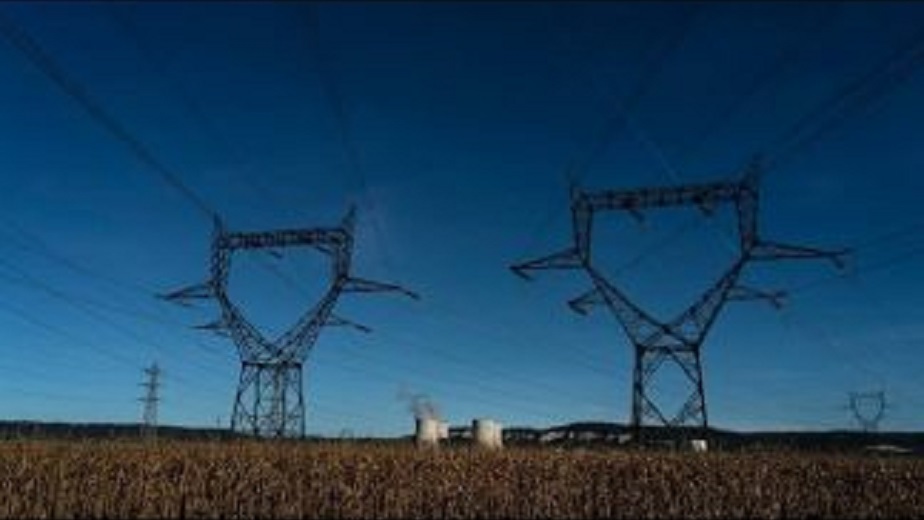Seaview (Switzerland) (AFP) – As people across Europe are urged to save energy next winter to avoid a power shortage, Switzerland’s Bavuna Valley is unfazed, having never been connected to the power grid.
Located in the Italian-speaking region of Ticino in southern Switzerland, the remote, ice-carved valley after the Pavona River is one of the steepest in the Alps.
But there are 12 hamlets made up of stone dwellings scattered along the rugged valley that are home to a few dozen residents most of the year, except for winter when fewer than 10 of them spend.
11 of the small villages are not connected to the electricity grid, although the area produces a lot of electricity thanks to dams high on mountaintops.
Romano Dado, a former alderman in Cevio, said the village at the lower end of the valley in which the villages are located is based.
Romano Dado (left), a former local councillor, with fellow villager Pace Tonini
He told AFP that bringing electricity to the valley would have required transformers, but “the people here didn’t have the money for that.” Only the last small village at the top of the valley could afford this luxury.
Over the course of the decades, the valley’s population has shrunk from around 500 to less than 50 now, according to Dado, and residents have learned to live without being on the power grid, making do with their heaters and installing solar panels on their roofs from the early 1980s.
– Oil lamps and candles –
Residents also use gas canisters, candles, and oil lamps. “We go to the river, as always,” said Tiziano Dado, Romano’s stoner brother, to wash their clothes.
The canyon, which is about 10 kilometers (six miles) long and surrounded by towering cliffs more than 2,500 meters in height, has occasionally seen deadly avalanches, floods and landslides over the centuries.
Seasonal migration to the area’s summer pastures continued until the 1970s.
Sonia Fornera, of Orizonte Albini, a group of experts in alpine history and culture, said families hiked into the valley with their animals from March through the end of December, back to Christmas.
October sunbathing next to the small village of Rossetto near Seaview
“It’s been a hard life but a simple life,” said Bess Tonini, 88, as she warmed herself by the fireplace in her home.
Despite its age, it still lives there from spring to October thanks to its solar panels.
“There is a lot of waste of electricity” in modern society, she lamented.
At night, there are no street lights to prevent her from admiring the stars – and she enjoys the night show more than watching TV, a rare sight in the valley.
Museum or dream? –
“We are used to living very simple and not afraid of savings” in terms of energy, said Ivo Dado, 81, who proudly installed the solar panels in 1987.
The former farmer – who has no direct relationship to the Dado brothers – is happy that some cities are forgoing their traditional festive illuminations in December.
“This Christmas will be the same as before, with less lighting. It will be beautiful again!” he said.
This gentle attitude to electricity is not to everyone’s taste.
Restaurant owner Martino Giovannitina believes the valley has become an open-air ‘museum’ rather than oriented towards tourism
“Solar panels are a partial solution,” Martino Giovannitina, a writer and owner of one of the few restaurants in the valley, told AFP.
It is believed that the lack of electricity, as well as the strict rules for restoring old buildings, are contributing to the depopulation of the valley and turning it into an open-air “museum” of the past, rather than oriented towards tourism as the neighboring valleys did.
In the Bavona Valley there is no place for tourists at all, except for the cable car from the last small village to the embankments, and parking in homes is prohibited.
Doris Feminis, the 2020 Swiss Prize Laureate for Literature, grew up in the valley and raised goats there during her twenties. Now she tells the story of Bavuna Valley in her books.
She now lives in the Jura Mountains in western Switzerland, and returns every two months to this “wonderful place of his childhood”.
“In Switzerland, we like the idea of still having a corner of wild nature,” she said, but she acknowledged that such places are not suitable for modern life.
“It’s a place in the past,” she told AFP.
“Nobody wants to live there anymore. It’s just a dream.”













































